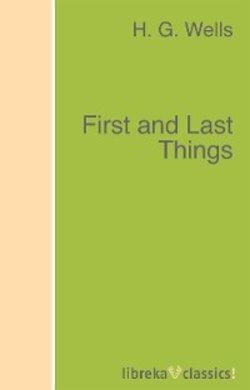Читать книгу First and Last Things - H. G. Wells - Страница 12
1.5. THE CLASSIFICATORY ASSUMPTION.
ОглавлениеAfter I had studied science and particularly biological science for some years, I became a teacher in a school for boys. I found it necessary to supplement my untutored conception of teaching method by a more systematic knowledge of its principles and methods, and I took the courses for the diplomas of Licentiate and Fellow of the London College of Preceptors which happened to be convenient for me. These courses included some of the more elementary aspects of psychology and logic and set me thinking and reading further. From the first, Logic as it was presented to me impressed me as a system of ideas and methods remote and secluded from the world of fact in which I lived and with which I had to deal. As it came to me in the ordinary textbooks, it presented itself as the science of inference using the syllogism as its principal instrument. Now I was first struck by the fact that while my teachers in Logic seemed to be assuring me I always thought in this form:—
the method of my reasoning was almost always in this form:—
That is to say, I was constantly reasoning by analogy and applying verification. So far from using the syllogistic form confidently, I habitually distrusted it as anything more than a test of consistency in statement. But I found the textbooks of logic disposed to ignore my customary method of reasoning altogether or to recognise it only where S1 and S2 could be lumped together under a common name. Then they put it something after this form as Induction:—
I looked into the laws of thought and into the postulates upon which the syllogistic logic is based, and it slowly became clear to me that from my point of view, the point of view of one who seeks truth and reality, logic assumed a belief in the objective reality of classification of which my studies in biology and mineralogy had largely disabused me. Logic, it seemed to me, had taken a common innate error of the mind and had emphasised it in order to develop a system of reasoning that should be exact in its processes. I turned my attention to the examination of that. For in common with the general run of men I had supposed that logic professed to supply a trustworthy science and method for the investigation and expression of reality.
